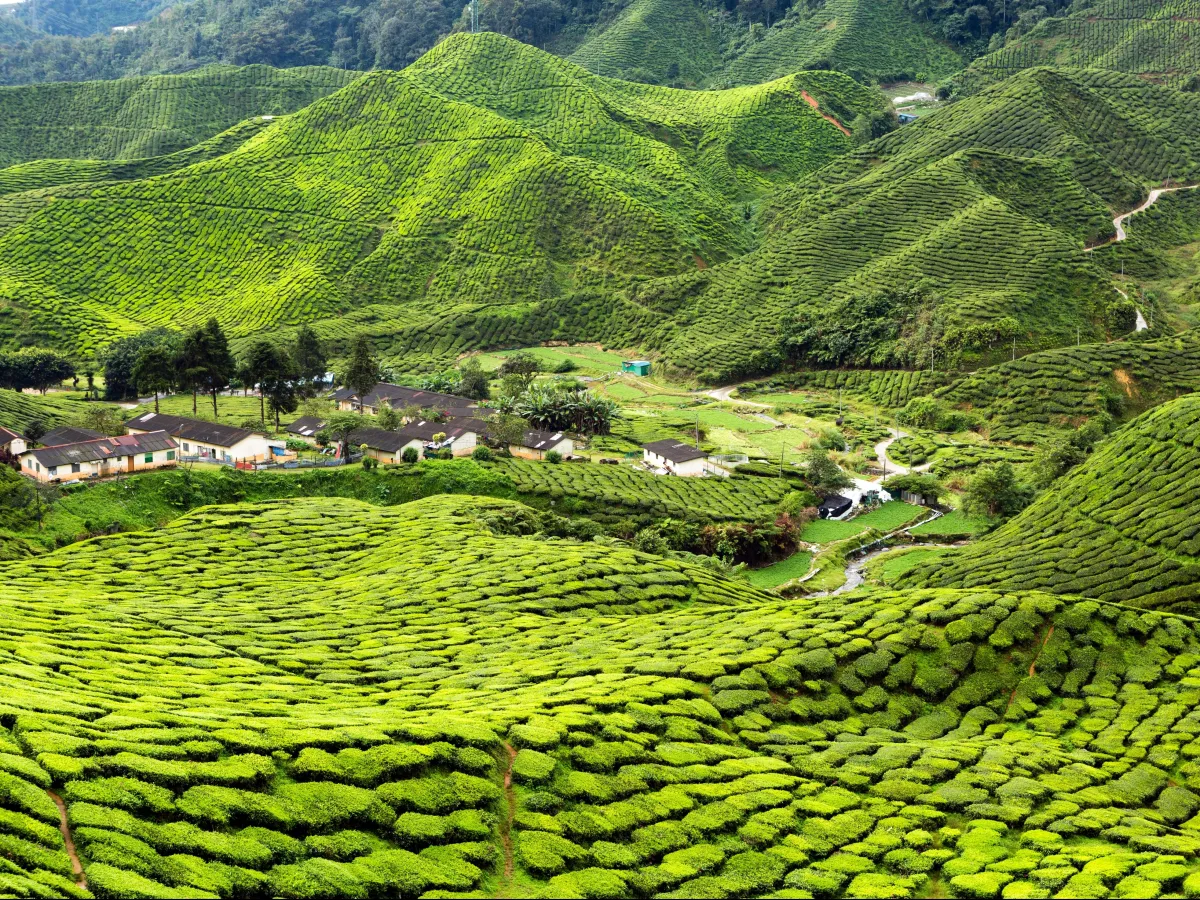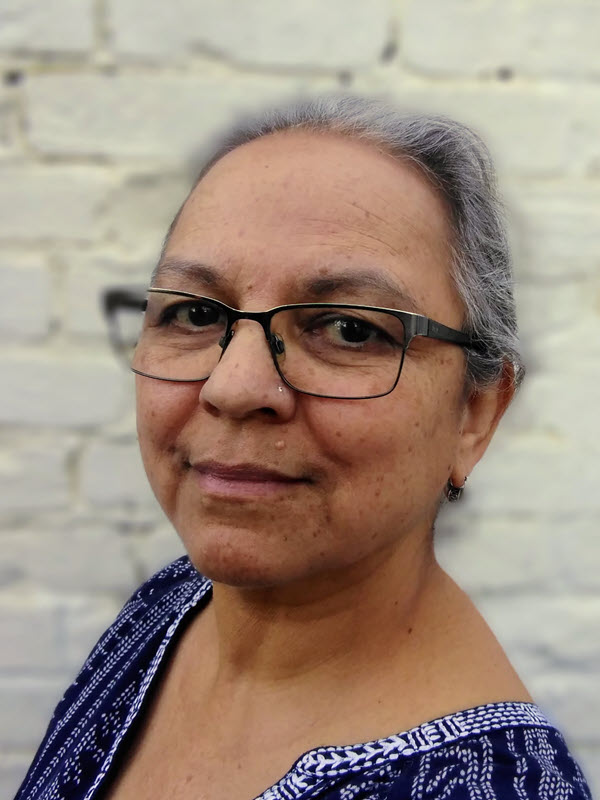THIRST has completed its initial Human Rights Impact Assessment in the global tea sector and is now seeking to understand the root causes. Founder and CEO Sabita Banerji says that, “the voices of producers are, in fact, quite rarely heard. They are often blamed for circumstances beyond their control. We just want to understand how it all works, where the levers for change may be, how the current situation might be driving some of the undeniable problems in the tea sector, and what could be done to address those problems.”
Producers: Tell your side of the story. Fill out this form to receive a link to the Global Tea Producers Survey before January 31, 2023.
Listen to the Interview
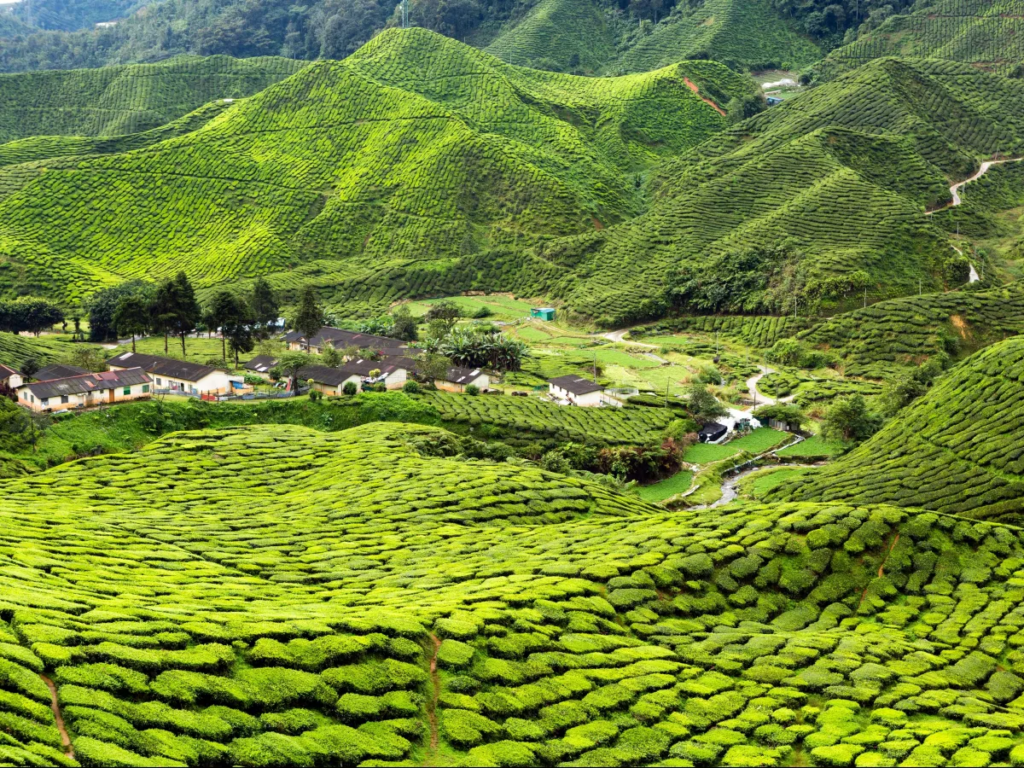
Tea Producers Get An Opportunity to Tell their Side of the Story
Sabita Banerji was born and raised on tea plantations in Kerala and Assam. She has spent nearly 20 years working in ethical trade and international development, holding strategic posts at Oxfam and the Ethical Trading Initiative. Sabita was previously a member of the Board of Directors of Just Change, UK – a voluntary community tea trading initiative.
She co-founded THIRST, The International Roundtable for Sustainable Tea. THIRST launched its Human Rights Impact Assessment of the global tea sector last year. Planned as a three-year study, Phase 1 of the literature review has ended, and Phase 2 is set to begin.
Aravinda Anantharaman: I am eager to hear how the study has progressed so far. First, do you want to debunk some preconceptions about this survey, especially as you have just launched the producer’s survey? Because human rights is a touchy subject and you have often emphasized that THIRST wants to work collaboratively with producers.
Sabita Banerji: You’re right, human rights are a touchy subject. But perhaps if we just think about tea workers and farmers as people like ourselves, mothers, fathers, sisters, and brothers, people who just want to live a decent life, who want to have a house that is safe and waterproof in the monsoon and who can afford to educate their children to a decent standard, and who can maybe have some savings so that if a member of the family falls sick they can get medical attention for them. If we think of it that way, then there’s nothing touchy about that. These are things we all want for ourselves; we all want for anybody that we work with. And I’m sure everybody in the tea value chain wants that for tea workers and farmers if possible.
However, we are working in a system established 200 years ago. And it was established with a certain structure, most of which persists today, and it was established at a time when there were very different moral standards regarding how workers should be treated. And so, we need to look at that, too. We live in an age of the UN Guiding Principles on Business and Human Rights. There will soon be legislation from the European Union on mandatory human rights and environmental due diligence. There are growing demands from customers, investors, and potential employers for companies to demonstrate that everybody working in their supply chain has a life that meets those decent standards. And so, I think that’s the way to look at this issue and not worry too much about the phrase “human rights.”
The two preconceptions I’d like to debunk with this phase of the Human Rights Impact Assessment are the preconception that civil society is somehow out to attack the tea industry and wants to destroy it. The opposite is true. NGOs (non-government organization) and civil society organizations, as much as the tea industry itself, wants the industry to survive. We want it to thrive. We want everybody within a thriving industry to be treated fairly and have a decent life. So that’s the first preconception I want to debunk.
The second one is that tea producers are solely responsible for the conditions in which tea workers and farmers live. They are part of a wider system. In fact, most of the profit of the margin from the sale of tea is concentrated at the packing and retail end of the value chain. So, we shouldn’t be looking solely at producers to try to solve these problems. We should be looking at the whole value chain and trying to discover what everybody within the value chain can do to make life better for tea workers and farmers.
If we were to use the language of human rights, it’s their right to have a decent life. But it’s also beneficial to the industry. There is a business imperative for ensuring that workers are not so unhappy that they are desperate for their children to get out of tea production. And so, just in terms of retention, productivity, and reputation of the tea industry as whole or individual companies, it is important for tea workers to say we have a decent life and for tea farmers to have a decent income.
Aravinda: Was there anything that came up from the literature review that you were surprised by? Also, where were the gaps in the available literature on the tea sector?
Sabita: The two biggest areas where we found gaps in the information were, first, information from East and Southeast Asia. There is much literature out, you know, and a disproportionate amount of literature about Assam and less so, but still quite a lot from Kenya and Malawi. But very little in other areas. And even in other East African countries like Tanzania, many of the resources we found were quite dated. But from countries from East Asia, Southeast Asia, Indonesia, Vietnam, etc., which are very big, major tea-growing countries, there needs to be more literature on what life is like for workers, tea workers, and farmers there. So that’s a gap that we hope will be filled. I have to say that since we were looking at available English resources, there are likely other resources out there, although we have tried to trace those and have not found any more information as far as we know. If anyone reading this knows of resources, reports, and documentation of situations for tea workers and farmers in those areas, I’d be very pleased to hear from them.
The second area where we found that there needed to be more information was about smallholder tea farmers. Because as you know, there is a huge surge in small tea farmers establishing themselves. And in fact, more than 60% of tea globally is now grown by small-scale tea farmers. I just read the news today that APJ (Apeejay Tea Group, the third largest tea company in India) is pulling out of the tea sector in India. Recently, Warren Teas also pulled out of its tea estates in Assam. It looks like the plantation sector is weakening, and the small tea growers’ sector is growing. And therefore, it’s important that we start to document and research, you know, what is happening to the workers and the farmers and their families? Because if there were problems in estates, and I think this is something that estate managers and owners have been telling us for years that yes, they may not have the ideal perfect conditions, but workers have some protection workers on tea estates. In contrast, small-scale farmers are dispersed across huge areas, there is no organization between them, it’s very hard to monitor. It would be very hard for retailers and brands to monitor what is happening within those farms, whether the human rights of everybody within those farms are being met. And so, this is an area where we need to see more documentation of those issues.
Aravinda: Where were the gaps in the available literature on the tea sector?
Sabita: The two biggest areas where we found gaps in the information were, first, information from East and Southeast Asia. There is much literature out, you know, and a disproportionate amount of literature about Assam and less so, but still quite a lot from Kenya and Malawi. But very little in other areas. And even in other East African countries like Tanzania, many of the resources we found were quite dated. But from countries from East Asia, Southeast Asia, Indonesia, Vietnam, etc., which are very big, major tea-growing countries, there needs to be more literature on what life is like for workers, tea workers, and farmers there. So that’s a gap that we hope will be filled. I have to say that, you know, we were looking at available English resources. So it may be that there are other resources out there, although we have tried to trace those and have not found any more information as far as we know. So, if anyone listening to this knows of resources, reports, and documentation of situations for tea workers and farmers in those areas, I’d be very pleased to hear from them.
The second area where we found that there needed to be more information was about smallholder tea farmers. Because as you know, I’ve been that there is a huge surge in small tea farmers. And in fact, more than 50% of tea globally is now grown by small-scale tea farmers. And I just read the news today that APJ is pulling out of the tea sector in India. Recently, Warren Teas also pulled out of their tea estates in Assam, and the plantation sector is weakening. And the small tea growers’ sector is growing. And therefore, it’s important that we start to document and research, you know, what is happening to the workers and the farmers and their families? Because if there were problems in estates, and I think this is something that estate managers and owners have been telling us for years that yes, they may not have the ideal perfect conditions, but they have some protection workers on tea estates. And but small-scale farmers, they are, you know, dispersed across huge areas, there is no organization between them, it’s very hard to monitor, it would be very hard for retailers and brands to monitor what is happening within those farms, whether the human rights of everybody within those farms are being met. And so, this is an area where we need to see more documentation of those issues.
Aravinda: The second phase of survey and interviews is a key phrase, isn’t it, of surveys with producers and interviews with industry stakeholders, particularly workers. What is the expectation of this phase?
Sabita: The second phase is really key. This is the analysis phase. The first phase was assessment, where we documented both how the industry works, what standards are in place, the human rights in principle and in practice. The second phase is analysis, which is the phase we’re in now. The third phase will be action planning, where we bring together international multi stakeholder players to discuss what should be done. And the fourth phase will be accountability, where we try to support the tea industry to monitor those action plans and how effective they are, whether they need adjustment, etc.
So, this is a key phase, this analysis phase. This phase will consist of three things, a producer’s survey, key informant interviews with a wide range of people throughout the tea sector and technical experts in things like international trade, gender, the tea industry as a whole. And the third element will be looking at alternative approaches, you know, what have different players been trying around the world to improve working conditions for workers or how tea is traded, and so starting to put out some potential solutions. But the most important one of those three, I think, is this producer survey. Because producers’ voices are in fact quite rarely heard. People worry that the voice of workers is not heard. And that is a legitimate worry. But there have been this huge number of reports, many NGOs and trade unions and academics, interviewing workers, finding out their position and their point of view and their lived experience. And obviously, brands and retailers are usually happy to speak out. But for producers, it’s harder because firstly, they are often directly blamed for the condition of workers on their estates. And secondly, they are just part of a wider value chain or wider supply chain. They have little control over the prices that are paid for the tea that their workers produce. And they are also under pressure with increasing costs and increasing climate impacts. Which makes it really difficult to run these estates, as perhaps we’ve seen from some of these companies pulling out and a lot of estates closing, leaving workers in a really vulnerable position. So we need to hear the voice of tea producers. We need tea producers to be able to say what pressures they’re under and what would help them to try and address some of these problems. And they need to be able to do this in confidence, anonymously so that there is no commercial risk to them in speaking out in case some of their answers may seem critical of their customers.
And you know, the principle that THIRST works on is that we’re not about blaming any player within the within the tea value chain. We’re not blaming producers for how they treat their workers. We’re not blaming brands and retailers for how they do their purchasing practices. But we just want to understand, we want to understand how it all works, where the levers for change may be, how the current situation might be driving some of the problems that are undeniably there in the tea sector, and what could be done by those players to address those problems.
Aravinda: And, as you said, there’s little available literature on small tea growers. Given the changing models, how will you approach Phase 2 given the differences in how large estates, small tea growers, bought-leaf factories, etc., operate?
Sabita: Yes, you’re right. The tea sector is very complex, at that production level, at every level, but the focus of this survey, we had to be very clear about whom we were targeting. And the issues for small-scale farmers, bought-leaf factories, and tea estates are very different, so it wouldn’t work to try to cover them all in one survey. So, we are targeting this survey at large tea estates; we intend to do surveys on factory workers and small-scale tea producers at some time int he future. But currently, we’re using the Indian government’s definition of a larger estate of five hectares or more and employing over 15 people to emphasize that this survey is not exclusively for India; it’s for any country where tea is being produced. So, all tea producers who meet those criteria are invited and encouraged to participate in the survey.
Aravinda: What are the challenges you foresee?
Sabita: The main challenge is getting producers to participate in the survey. Because over the years and centuries, much trust has been lost between the different players within the tea sector. And it will take time and careful work to tear down those barriers or dissolve them between the players. So, I want to reassure the producer that this survey will be done anonymously. And you can confidently answer the questions so that the responses will not be revealed to anybody. But what we’re going to do is we’re going to aggregate the results. So, a certain percentage of respondents confirmed that in the last year, this is how much of their made tea was sold below the cost of production. We’re not naming any producers. We’re not naming any buyers, brands, or retailers. We’re just going to focus on the generic responses that tea producers give us. But we also have space within the survey for producers to give us more detail if they want to. Again, those responses will be treated completely anonymously. And you know, if there’s anything within it that would identify the state or all their customers, we will not publish that. But it will be extremely valuable to have that information to feed that knowledge and understanding into the next phase where we’re developing. We’re working with the industry to develop an action plan. We invite producers themselves to be part of those multi-stakeholder discussions to be part of the discussion about what role they can play in improving the life and work of the workers, but also what they need from the other players within the value chain to enable them to do that.
Aravinda: How different will THIRST’s on-the-ground research be from, say, audits by certification bodies?
Sabita: The Global Tea Producers Survey is a very, very different thing from an audit or certification standard. Audits and certification checks are just checking up on the producer. Whereas this is asking the producer to say what their challenges are, what their opportunities are, and what their situation is. So the data from this survey will complement what you get from audits. But it is a very different kind of study.
Aravinda: Is there anything you’d like to put out there to producers on why they should participate in the survey, what is expected of them, and how the information will be used?
Sabita: All tea producers, managers, and owners of tea estates in whatever country they’re in should seriously consider taking part in this survey. This is not just a brief few questions; it will require an hour of your time and allow you to put your side of the story forward. THIRST is not about blaming any party for the situation of tea workers and farmers. But the voice of producers has yet to be heard. This is your opportunity. Often producers say that what is reported about them needs to be more accurate. This is your opportunity to give accurate information about managing a tea estate, paying workers a decent wage, and providing decent benefits. So please, please do take up this opportunity. Don’t be afraid, don’t be defensive. Because this is not an attack, this is offering you the opportunity to speak out.
If you agree to take part you’ll be emailed a link. The survey is on Survey Monkey, which we’ve researched and have found to be the most secure. This spring we will aggregate the data we receive and we’ll put that together in a report to try to reflect the challenges that producers around the world are facing and what the situation is really like for them. And then, that report will be combined with our findings from the key informant interviews, and we hope that some of you will agree to take part in those interviews. And it will also be combined with the results of the alternative approaches that we hope to document. So when combined with the Phase One report, we looked at the problem. We look at how the tea industry works, and we will look at human rights in principle and human rights in practice. In Phase Two, we will have looked at the producers’ perspective. The key informant interviews will give insights into what could be driving some of these problems. And then also these alternative approaches, which will show us some of the potential solutions that there might be. And we’ll bring all that together for Phase Three when we invite tea stakeholders from around the world to come together to discuss what they, working together or individually or in groups, could do to address these problems. And thereby not only making lives better for tea workers and farmers worldwide but also strengthening the tea supply chain and improving the tea industry’s reputation.
See What is THIRST, the International Roundtable for Sustainable Tea
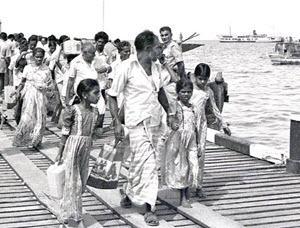
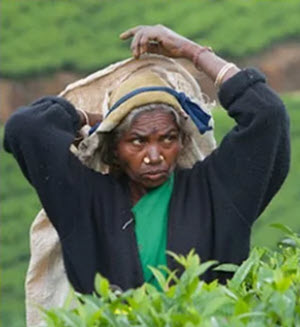
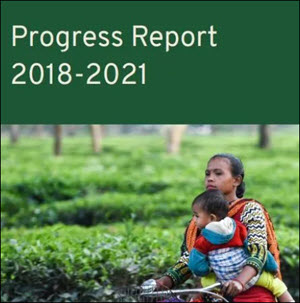
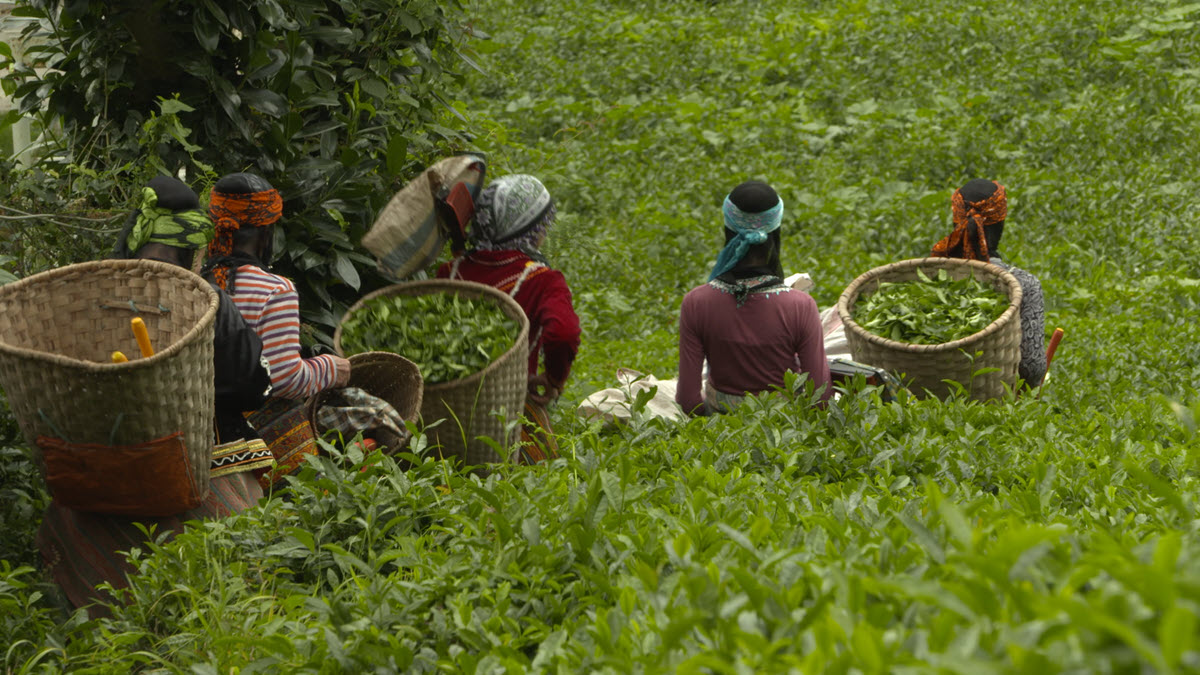
If you manage or own a tea estate anywhere in the world, THIRST would like to offer you the opportunity to give your side of the story by taking part in the confidential Global Tea Producers Survey.
— Sabita Banerji
We understand that issues like price discovery and purchasing practices can be commercially sensitive, and the survey provides for anonymity and confidentiality. We also believe the survey will help tea buyers to better understand the pressures that suppliers are under. Pressures which can impact on workers, creating potential reputational risk to both their brands, and to the industry as a whole. Results will be aggregated and neither producers nor buyers will be publicly named.
Consumers, investors and employees around the world are increasingly demanding higher social and environmental standards for those who produce goods and services. To meet that demand in the tea sector, everyone involved needs to explore how they might be unintentionally suppressing workers’ pay and conditions, including tea producers, governments, trade unions, tea buyers, brokers, packers, traders, brands, retailers and tea consumers.
By working together, THIRST believes that a new kind of tea industry is possible – a tea industry fit for the 21st century, a kinder, fairer industry in which everyone thrives. But we can only get there if we listen to all voices, and understand all perspectives – including those of tea producers.
Anyone who’d like to participate in the survey should go to THIRST’s website: www.THIRST.international Scroll down to see a link to the producer survey to register. And we very much look forward to hearing what producers worldwide would like to share about the realities they are facing.
To register and complete the survey, please fill out this form before 31st January 2023.
Link to share this post with your colleagues
Signup and receive Tea Biz weekly in your inbox.
